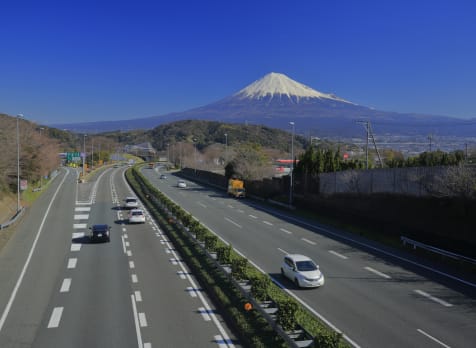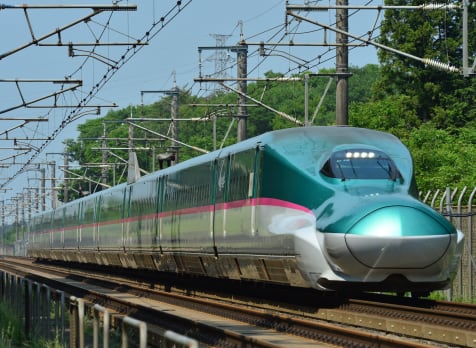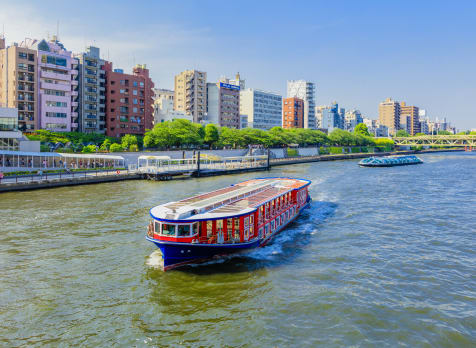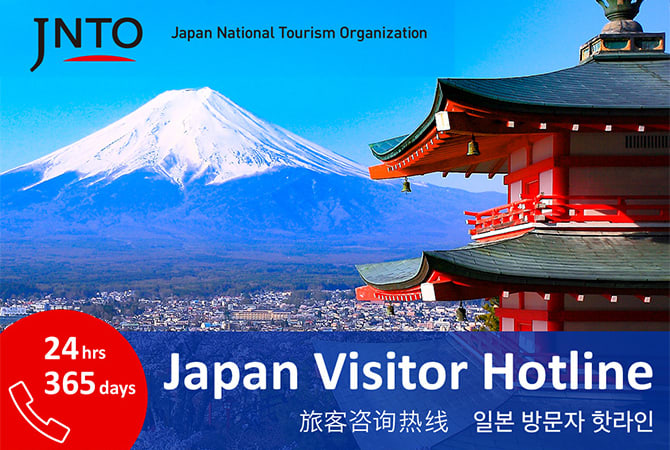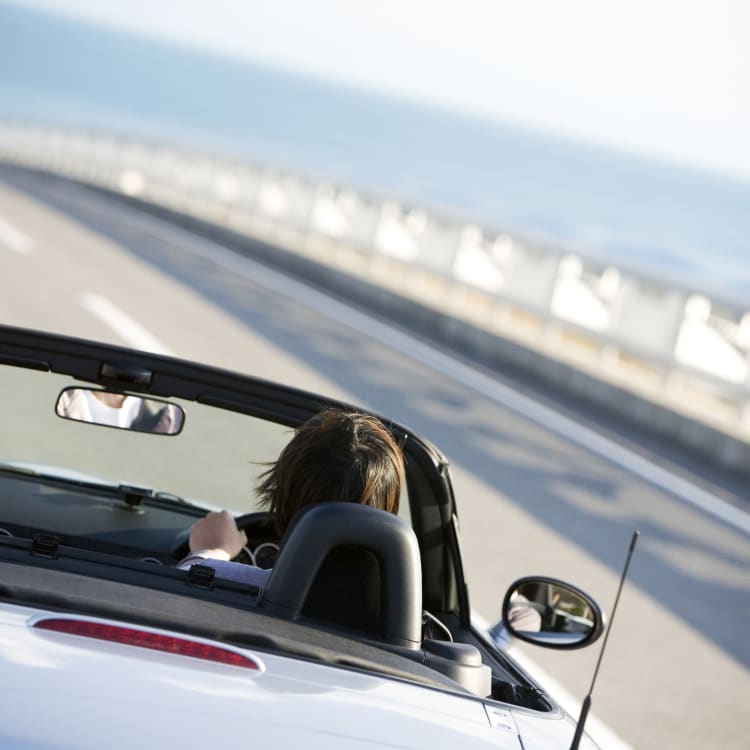

Things to know when renting a car
The islands of Hokkaido and Okinawa are much more accessible by car and the roads are generally very easy to navigate.
If you plan to hire a car during your stay in Japan, make sure that you are aware of all local rules and have all the necessary documentation. This short video of traffic rules in Japan will give you the basics, but be sure to research further into renting a car in Japan
International Driving Permit
If you wish to drive a car while in Japan, you must obtain an International Driving Permit prior to departure. An International Driving Permit is only valid if it is issued by the issuing authority in your country. International Driving Permits are generally issued by the national automobile association in your country. Be aware that to be able to drive in Japan, your international driving permit needs to be issued from one of the countries/regions which participates in the Convention on International Road Traffic of 1949 (Geneva Convention) and be consistent with the regulations laid out therein.
The official UN web site lists the countries and regions that participate in the Geneva Convention. International Driving Permits are valid for up to one year from the date of issue and further restricted to one year from the date of arrival in Japan. The date of arrival in Japan is confirmed by the entry stamp on your passport. Some airports have automated gates, and if you pass through an automated gate, you cannot obtain an entry stamp on your passport. If you wish to rent a car, please go to a non-automated gate and obtain an entry stamp before passing through the gate. If you have passed through an automated gate, please visit the customs inspection desk to have an entry stamp placed in your passport.
In Japan, a booklet-type paper International Driving Permit is valid. Card-type and smartphone versions of International Driving Permits are not valid in Japan. Note that a different procedure applies to visitors from Switzerland, Germany, France, Belgium, Monaco and Taiwan. If you have a driving license issued in one of these countries/regions, you must carry both your original license and a Japanese translation. This will enable you to drive a car in Japan for one year from the date of your arrival in the country. Please check the following website if you have a driving license issued by Switzerland, Germany, France, Belgium, the Principality of Monaco, and Taiwan.
For more information on valid driving licenses in Japan, please click here.
Japan Experience
Proxy applications for a Japanese translation of driving licenses from the following countries/areas to JAF is available: Switzerland, Germany, France, Belgium, Monaco, Taiwan Languages available:English, French, German, Italian, Spanish
Keikaku Japan
A proxy applications for a Japanese translation of driving licenses from the following countries/areas to JAF is available: France, Belgium, Switzerland
Languages available inquiry:French
Rental Companies
Companies offering vehicle rental at various locations throughout Japan include:
Budget Tel. 0570-054-317
Hertz
Tel. 0800-999-1406 (toll-free)
Japan Campingcar Rental Center
E-mail. info@japan-crc.com
JR (Japan Railways) Rent-A-Car
E-mail. reserve@mx.ekiren.co.jp
Niconico Rent A Car
Tel. 092-687-4556
Email. inquiry@niconicorentacar.jp
Nippon Rent-A-Car Tel. 03-6859-6234
Nissan Rent a Car Tel. 0120-00-4123
Orix Rent A Car
E-mail. webmaster@orix.jp
Times Car Rental (Former Mazda Car Rental)
Tel. 0120-39-8924
Toyota Rent-A-Car
Tel. 092-577-0091 or 0800-7000-815 (toll-free)
Price
Rental prices may vary from company to company. Average rates for 24 hours rental with unlimited mileage are as follows:
| Size | JPY/Day |
| Sub-compact (1,000-1,300cc) | 5,000 – 11,100 |
| Compact (1,500-1,800cc) | 9,000 – 13,500 |
| Intermediate (2,000cc) | 14,000 – 30,000 |
| Standard (3,000cc) | 29,500 – 31,000 |
Rental car insurance
When renting a car, you are required to purchase insurance with a certain level of coverage. Insurance coverage and conditions may vary depending on rental car companies, but be sure to purchase it just in case an accident should occur.
Car rental etiquette
Check for any scratches or dents on the rental car with the staff before driving off from the rental company. Refueling the car, before returning it, is also one of the basic rules to be observed.
Fuel costs
The above rental charges do not include fuel costs. Fuel in Japan costs approximately 170 yen per liter (as of 2022).
How to refuel at gas stations
There are two types of gas stations in Japan: full-service stations, where staff will refuel your car, and self-service stations.
Please see the following link for how to refuel your car at gas stations.
Driving in Japan
Visitors who intend to drive in Japan should note the following: On main roads, most major destinations are sign-posted in English. In rural areas, this may not be the case. If you are planning to drive in more remote areas, it is advisable to purchase a reliable English-Japanese road atlas before you depart. Companies such as Shobunsha and Kodansha publish these atlases.
(*) Some rental companies have cars equipped with foreign-language navigation systems. Please inquire with the rental company at the time of reservation.
Traffic rules in Japan
Cars drive on the left side of the road. Please note that many accidents occur when a car turns left or right. Japan has strict road rules including:
・When driving, ensure the driver and all passengers have seatbelts fastened.
・Make sure to observe and comply with all speed limits.
・You must not drive under the influence of alcohol.
・Using mobile devices while driving is illegal.
・Before crossing railroad tracks, drivers must pause at the stop line and check both ways for oncoming trains.
・Newly licensed and elderly drivers must display appropriate signs on the outside of their cars.
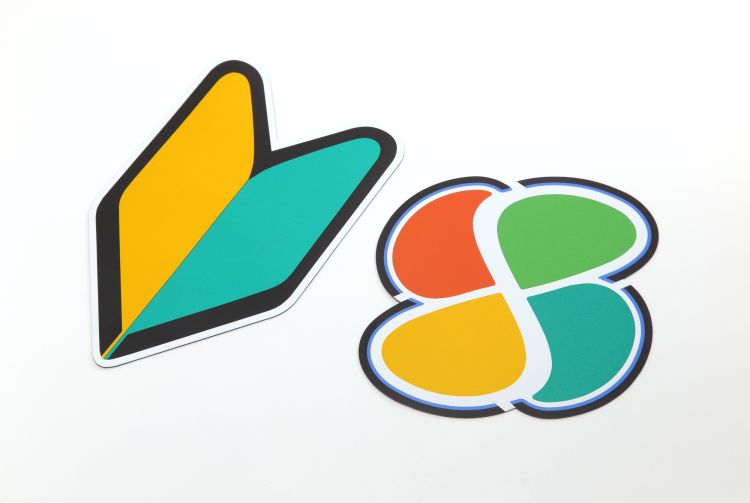
Newly Licensed Driver/Elderly Driver Mark
・When traveling in snowy areas, be sure to install winter tires or tire chains.
・Parking can be difficult to find in some urban centers.
・You may get penalties if you don't park your car in a designated car parking space.
・Tolls are levied on expressways and other major routes. Toll charges will depend on how far you wish to travel and which roads you intend to take. Example: Tolls for one route from Tokyo to Kyoto cost approximately ¥10,070.
・JAF publishes an multi-language guide to driving in Japan called “Rules of the Road”. These are available at JAF offices throughout Japan. For further information go to the JAF web site .
For the traffic rules in Japan, please see the following websites:
All Japan Rent-a-Car Association Traffic Rules in Japan
All Japan Rent-a-car Association: Information for international tourists in Japan
JAF Traffic Rules in Japan
All Japan Rent-a-Car Association Car Rental Guide
Kyushu District Transport Bureau (MILT) Rent-A-Car Drive Manual English
Kyushu District Transport Bureau (MILT) Rent-A-Car Drive Manual Korean
Kyushu District Transport Bureau (MILT) Rent-A-Car Drive Manual Chinese
Kyushu District Transport Bureau (MILT) Rent-A-Car Drive Manual Thai
“Michi-no-Eki” (Roadside Stations)
Many towns and cities have roadside establishments called “Michi-no-Eki” parking areas where one can rest. They also provide an array of services such as information on local culture, history, places of interest, and specialties of the areas along the route, as well as give road trip suggestions. One can also buy a variety of regional products and souvenirs at the stores.

Scenic driving routes
There are many scenic routes to drive on that offer breathtaking views throughout Japan. Make your sightseeing and travel plans using expressways to make the most of the scenery on your road trip.
Recommended driving routes from the
All Japan Rent-a-Car Association:
English
Korean
Traditional Chinese
Thai
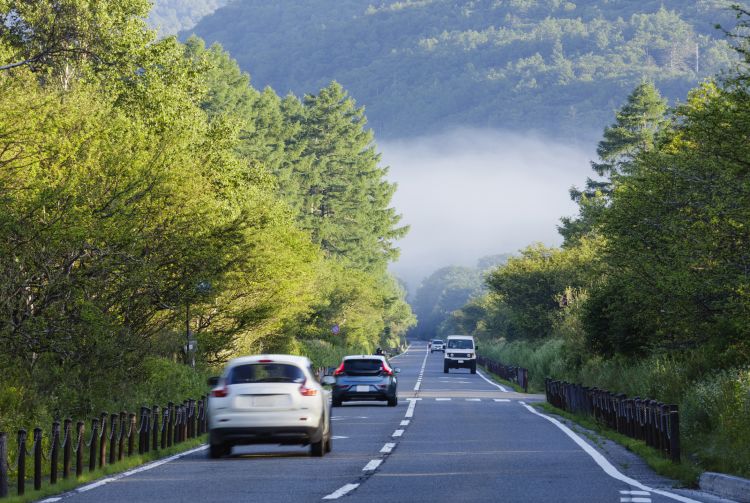
Tourism Driving Route
Expressways in Japan
In many cases, expressways in Japan require toll fees. Expressway tolls are collected at toll gates by either manual cash or credit card payment (gates with a green sign) or automatic ETC card payment (gates with a purple sign). If you rent a car and use an expressway, please obtain an ETC card from the rental company. ETC (Electronic Toll Collection) cards can be rented at most car rental companies. Please settle the toll fees charged to the ETC card when you return the car to the car rental company.
Along the expressways, there are service areas where one can use restrooms and enjoy a variety of restaurants and shops full of local products and souvenirs. Drive safely while taking regular breaks at service areas.
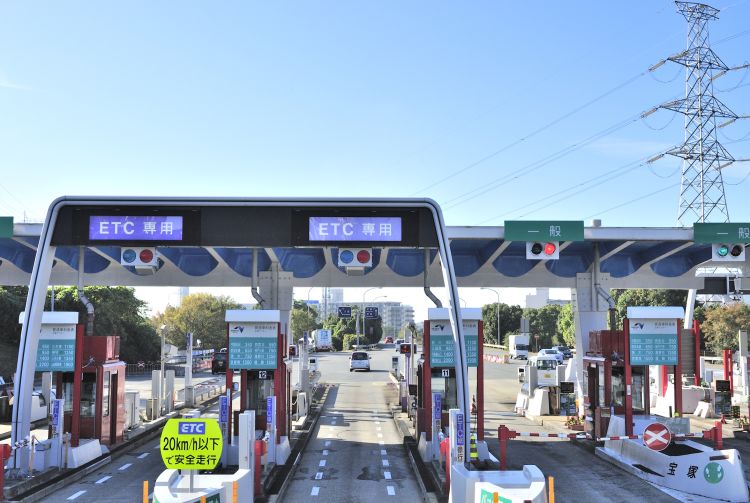
Unlimited Expressway Pass available only for foreign tourists
While the Japan Expressway Pass (JEP) is no longer for sale as of December 2023, many great regional expressway passes are available for purchase! These passes are only available to international travelers and provide unlimited use of major expressways in different regions throughout Japan. For more information, check out our Regional Expressway Passes guide here .
Hokkaido Expressway Pass
Tohoku Expressway Pass
San'in-Setouchi-Shikoku Expressway Pass (SEP)
Kyusyu Expressway Pass(KEP)
Central Nippon Expressway Pass (CEP)
※New bookings of CEP closed from October 1, 2024.





















































